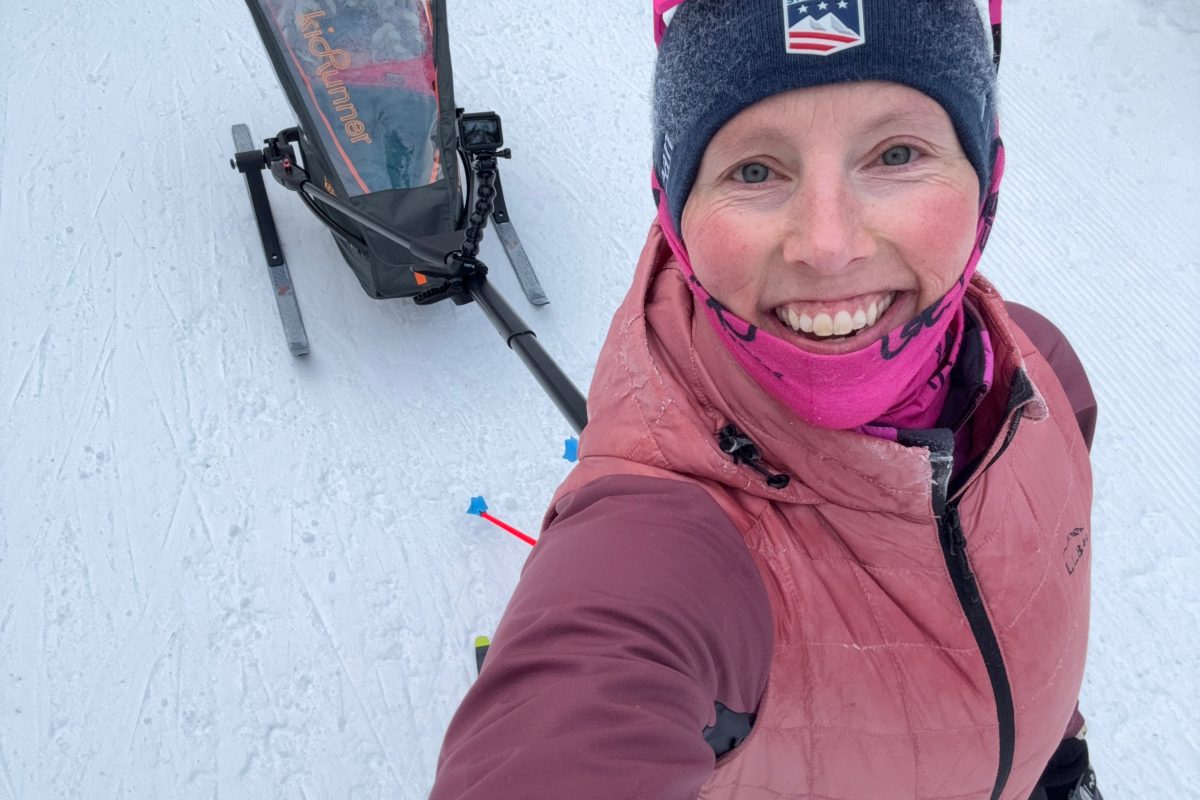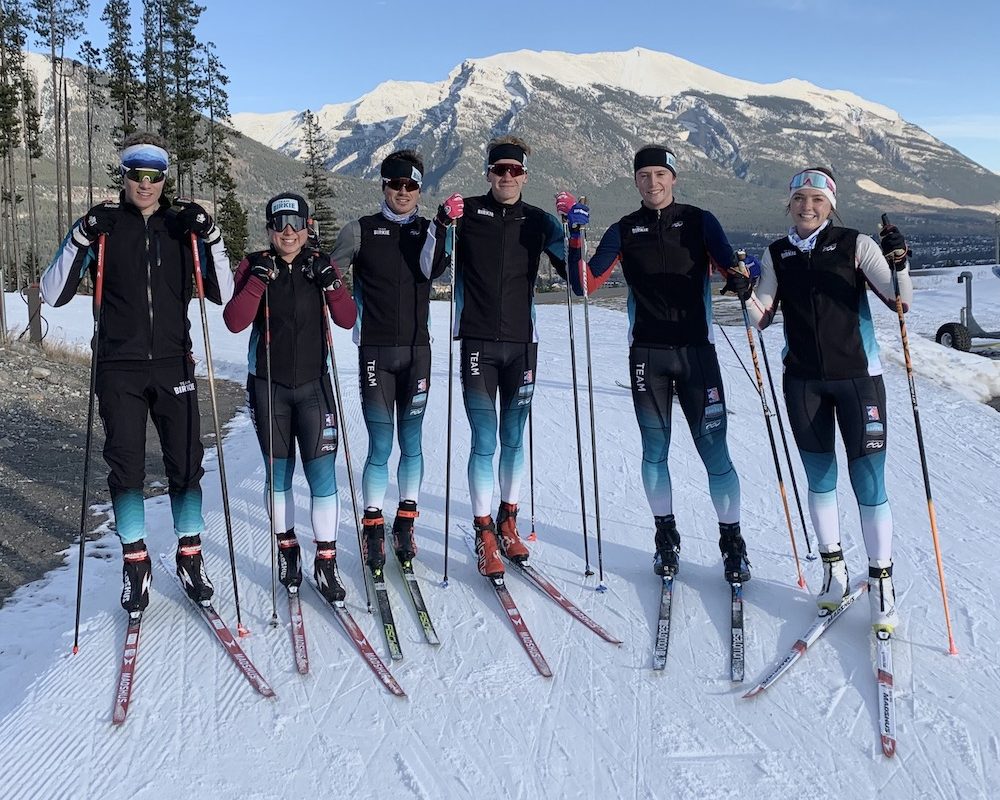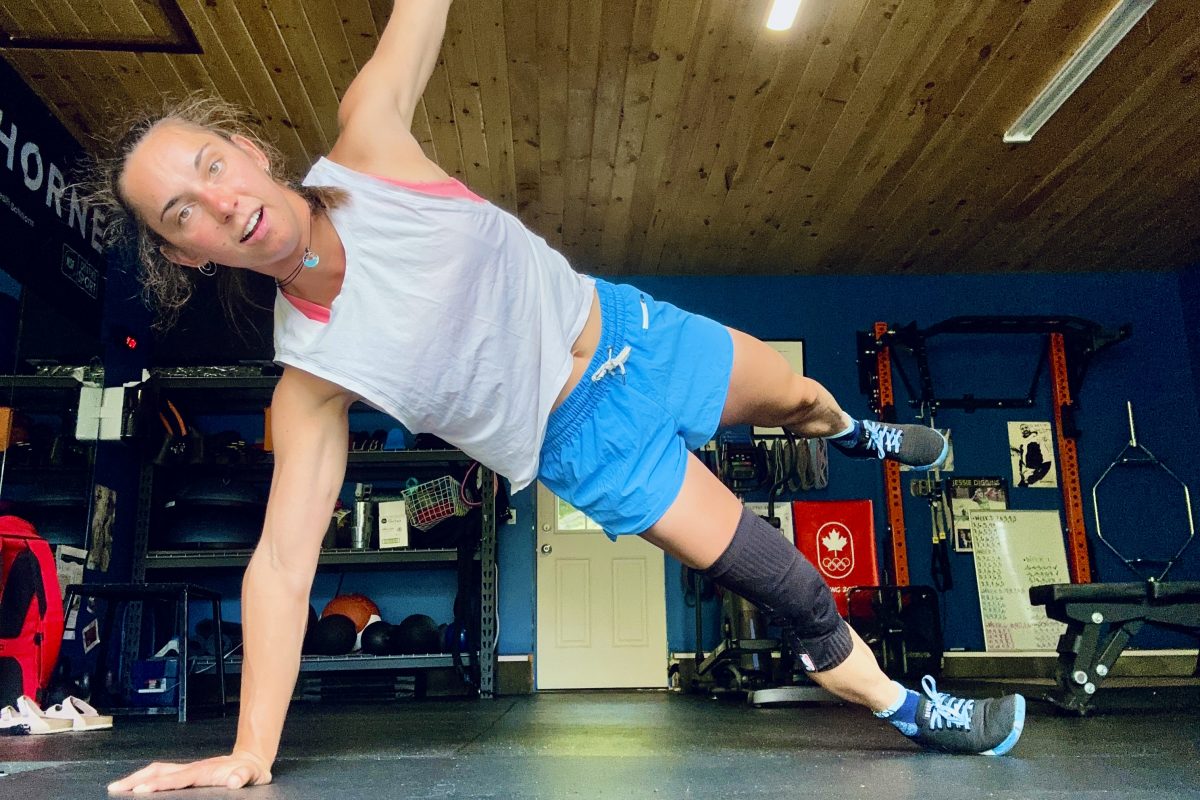I walk the 200 meters from my room to the dining area for lunch. On the door some one has hung a poster with congratulations to “our golden boy.” Inside the dining hall I experience again what has been part of our team’s success during the 1990s: commaradary, team spirit, and the ability to celebrate when things go well for another on the team. The other racers give me hugs and handshakes. Even those who will not get the chance to compete in a single event are genuinely happy. It both warms and impresses me, and it creates a team spirit that leads me to feel like I want to give something back to the team by supporting and giving help and advice to the younger skiers.
Here there isn’t a wisp of jealousy, even though I know I have a far better economic contracts situation then other skiers on the team and probably get more attention than I deserve. Here everyone is loyal and they have an open relationship to the others. No one is afraid to say what he or she means. I don’t think it has always been this way in Norwegian cross-country skiing.
The team spirit isn’t limited to just the racers. Even the support staff does more than what can reasonably be expected of them. Here at lunch (which can almost be said “as usual”), the team’s medical staff has written a victory song for me to the tune of a popular piece of music from 1960. During the national press conference, I am further aware that everyone is in a humorous mood. When a reporter asks Thomas Alsgaard, Sture Sivertsen and Erling Jevne what they will have to do to beat me.
“I hope that Vilde gives birth to twins and it means that he has less time to train,” answers Thomas.
“But Bjœrn would have never had enough time to provide her with that much seed,” adds Erling dryly. (Both they and the journalists know that Vilde is pregnant).
Even though the program is tight, we need lots of time to get to the medals ceremony at the city’s center. We have heard that close to 40,000 people are waiting, and that it is chaos there. Reporters from two newspapers ask if they can ride with us to the ceremony, which is fine. As we creep through the traffic, I am asked questions about how it feels to win this gold medal in relation to the other ten gold medals I have.
Once we are there, I line myself up with the honor guard soldiers at the ceremony stage’s edge. “Forward, March!” The honor guard marches in front, with us three medal winners behind. I think to myself that I must remember to take off my hat during the playing of the national anthem. I forgot to do that earlier in the day when King Harald congratulated me. He took off his hat, but I didn’t. It was embarrassing, of course, but the king is such a good sort that he will surely forgive me.
What a scene that greets us on the stage! Throughout the entire center of the city, and down the side streets as far as I can see, people are standing shoulder to shoulder. In the center of the sea of people stands the statue of Olav Trygvasson majestically. It is as if he is also proud today. I thought that as a skier I had experienced everything that I could in terms of a party atmosphere after Lillehammer, but this is even wilder. It was an even bigger expression of joy in sport and national feeling.
“Number one and World Champion 10 kilometer classic 1997: Bjœrn Daehlie!”
I jump up to the top of the podium, bow and thank the sea of people who are cheering for me and singing loudly. The songs are enthusiastically delivered, if not entirely in rhythm. And then the national song is played. There are no tears in my eyes today, but they have come many times before. When I stand on the top of the podium and the national song plays, I feel like I contribute to a larger feeling of community. I feel that moments like this do not just mean something for the sport of skiing, but (if I am allowed to say it) to the nation as well. Cross-country skiing still has a central place in the soul of the Norwegian people. Everyone in Norway has skied, and in every small nook and cranny of the land people are following the important championship races. I have been reminded more than once that it means a lot to them when we do well in races. After triumphs in big races I am often stopped in the street and thanked, and I also often receive letters (especially from the elderly) describing how much cross-country skiing means to people and how proud they become when we do well. The situation is probably not the same for the alpine skiers. The older generations do not have the same relationship to alpine sports as they do to cross-country skiing.
But there are no tears today, though. I stand and think about the wax technicians, Magnar Dalen and Per Knutland, and if I could have brought them to stand on the podium with me. They deserved it. They are probably watching on TV and already working on testing and preparing the skis that I will use in the pursuit race tomorrow.
As soon as “Ja vi elsker” has faded out, I go over to a lady in a wheelchair and give her my flowers. Since ski sport means so much to the elderly, I am especially aware of their presence when I am at races and other events. It is almost eight hours since I collapsed across the finish line up in the ski stadium, but the day is not yet finished. Now it is the TV station’s turn. Above all I want to relax with the boys in the camp, but it is my obligation to show up for Norwegian National Broadcasting’s World Championship show. It is fun, though; at least when things go as well as they did today. Then it is usually not difficult to answer the questions they throw at me. I manage to sign a few autographs, but unfortunately way too few. The chaos in the city has not diminished. We must have a police escort to make it to the live broadcast.
On the boat where the show is produced, there is a completely different atmosphere. This is my old friend Terje Bogen’s home court. He has rented the entire ship and gathered sponsors for meetings and dinners with “something else.” They are certainly having a fine evening. If the event is taking care of customers, Terje is the clear champion. When he is along, everyone is pleased. The whole experience is so much fun that no one remembers the money he is using for the party is actually only a small fraction of the 30 per cent cut he commands for their sponsorship contracts. The show is broadcast in the nightclub on board the boat.
And then, finally: nine o’clock and it is time for the last stage of the day. It’s home to the school where we are staying for a nice reception with the skiers and coaches, plus a beautifully made marzipan cake. As usual in the big races, a particular bakery has baked us the cake. The mood is happy and excited, as it always is after we have had a victory. A victory eases the press on the entire team. Everyone feels like they are part of something successful. Actually they should all receive a piece of my gold medal.
Two hours later I am back in bed in room six. It went like I hoped it would as I lay here over 15 hours ago and visualized the perfect race: the perfect race, and a gold medal. But it means nothing tomorrow. Then it is the pursuit, with Mika Myllyla hungry for revenge and only a half-minute behind me.



